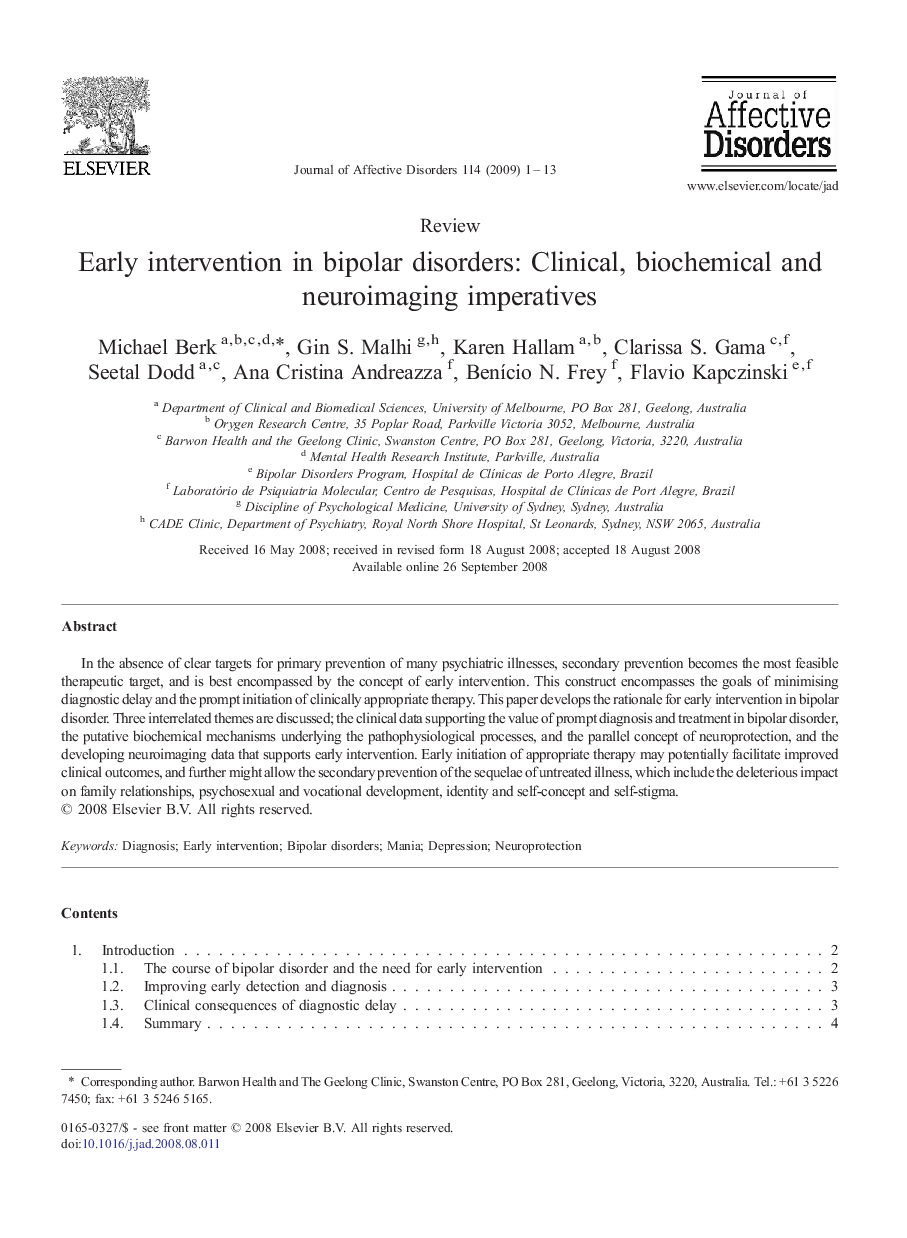| Article ID | Journal | Published Year | Pages | File Type |
|---|---|---|---|---|
| 4187297 | Journal of Affective Disorders | 2009 | 13 Pages |
In the absence of clear targets for primary prevention of many psychiatric illnesses, secondary prevention becomes the most feasible therapeutic target, and is best encompassed by the concept of early intervention. This construct encompasses the goals of minimising diagnostic delay and the prompt initiation of clinically appropriate therapy. This paper develops the rationale for early intervention in bipolar disorder. Three interrelated themes are discussed; the clinical data supporting the value of prompt diagnosis and treatment in bipolar disorder, the putative biochemical mechanisms underlying the pathophysiological processes, and the parallel concept of neuroprotection, and the developing neuroimaging data that supports early intervention. Early initiation of appropriate therapy may potentially facilitate improved clinical outcomes, and further might allow the secondary prevention of the sequelae of untreated illness, which include the deleterious impact on family relationships, psychosexual and vocational development, identity and self-concept and self-stigma.
